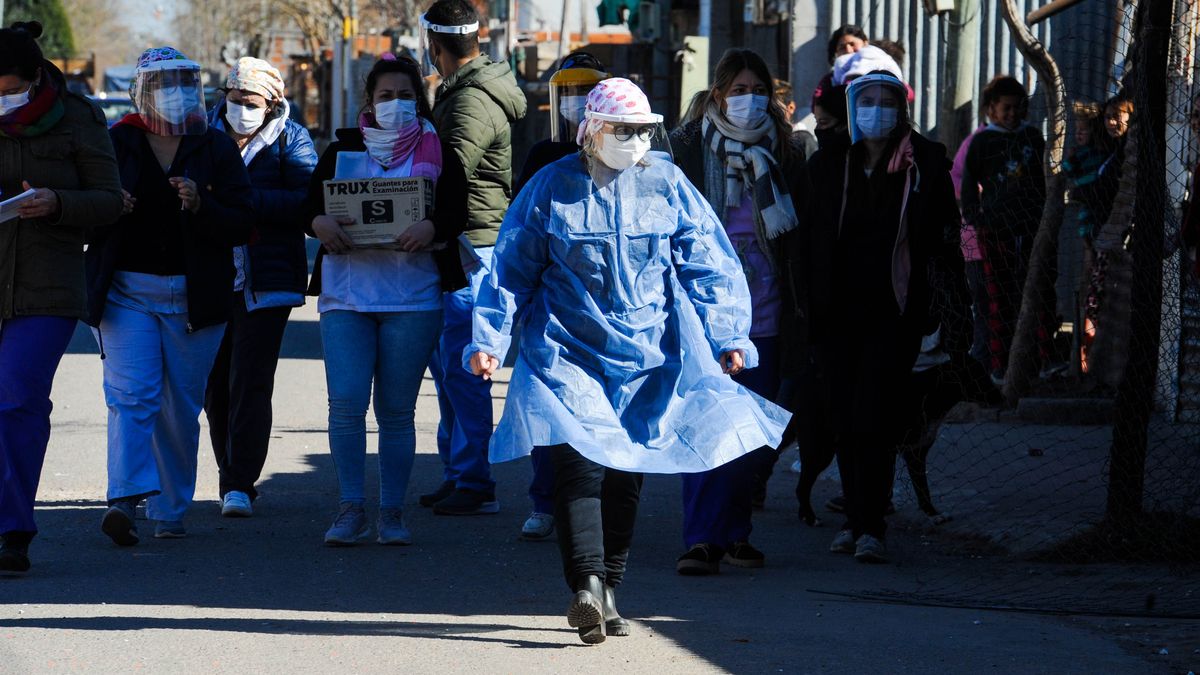
[ad_1]
In the latest Covid Weekly Report, the WHO named Mu, lineage (genetic group) B.1.621, and rated him of interest along with Lambda, among others.
When a variant enters the list of interest, it is because it involves an emerging risk for global public health.
There are others like Delta, Gamma, Beta which are worrying and therefore already involve a very high risk of contagion, in addition to generating “a decrease in the effectiveness of social and public health measures or diagnostic means. , vaccines and treatments. available, ”explained infectologist Marcelo Leguizamón, member of the Argentine Society of Infectious Diseases and the Spanish Society of Infectious Diseases.
With Delta, it has been particularly found that transmissibility and complications are high in unvaccinated individuals.
Regarding Mu and the protection offered by existing vaccines, it is being investigated whether it actually decreases in those who have one or two doses placed and in those who have already been infected.
The high number of infections in Colombia, even among those vaccinated, suggests that there is a loss of protection, but it has not yet been precisely determined.
Mutation
Should we be alarmed each time a new mutation appears at the scene of the pandemic? Infectious scientist Matías Lahitte, of the Municipal Emergency Operations Committee (COE), mentioned that “these variants are going to appear in different parts of the world, because viruses have the possibility of mutating, and as long as we have a percentage of the world population without being vaccinated (there are regions with a very low number of inoculated people), the virus will mutate more and more ”.
There are variants of interest, which are the ones under study, and others of concern which are “genetic mutations that can generate more transmissibility, more impact on hospitalization and mortality, and even testing. detection are less effective, in addition to antiviral or biological treatments. available “.
To prevent variants from continuing to be generated, some of which may irritate the population, equity in the distribution of vaccines is a key point: “In this pandemic, you cannot think that a country, for example, will be immune to the virus even with the entire population vaccinated because with a single country with a low number of doses placed, the virus will continue to mutate, and these changes, which in some cases can be more complex, can complicate the epidemiological panorama ”.
Regarding Mu, Lahitte underlined that “it is not worrying for the moment and it is necessary to see according to the studies in progress what impact this has”.
Leguizamón, for his part, stressed that “in the face of this pandemic which seems to have no end, rather than worrying, we must take more and better care of the square meter in which we must act”.
The specialist reflects: “The reservoir of the coronavirus is the general population. As long as it continues to circulate, new variants will appear. At the moment, there is a greater relaxation of prevention measures and an increase in social mobility, which allows the virus to circulate more easily and have a greater capacity for mutation, added to the inequity of policies vaccination and fatigue due to the pandemic “.
For Leguizamón, knowledge “is like a hammock: to reach the highest point, you have to go through the lowest point. While science provides us with better tools to leave the pandemic behind us, the lowest point of the hammock remains chin straps, hand washing, ventilated environments and, most importantly, individual responsibility ”.
The situation in Santa Fe
While in provinces such as Cordoba and Buenos Aires the transmission of contagions from the delta is increasing, in Santa Fe the number of people infected with this variant is still low. The predominant in the province is Gamma (Manaus), present in about 83% of all cases.
Meanwhile, the 9 people who tested positive for Covid from the Delta variant already have an epidemiological discharge.
As reported Thursday by virologist Adriana Giri, researcher at IBR (Conicet / UNR), who coordinates the work of a team of professionals who are monitoring variants for Proyecto País (a federal genomics consortium) the current situation in the province, according to the data they have processed so far, is:
Rosario node (since May, total samples analyzed 489): 83% corresponds to the Gamma variant (line P.1, Manaus) and 12% Lambda (line C.37, Andina), 5% Alpha (line B.1.1.7 , UK).
Rafaela node: 83% corresponds to the Gamma variant (line P.1, Manaus) and 17% Lambda (line C.37, Andina).
So far, the Delta variant (line B.1.617.2, India) has not been detected in community circulation.
[ad_2]
Source link
 Naaju Breaking News, Live Updates, Latest Headlines, Viral News, Top Stories, Trending Topics, Videos
Naaju Breaking News, Live Updates, Latest Headlines, Viral News, Top Stories, Trending Topics, Videos